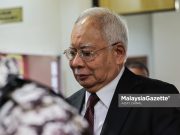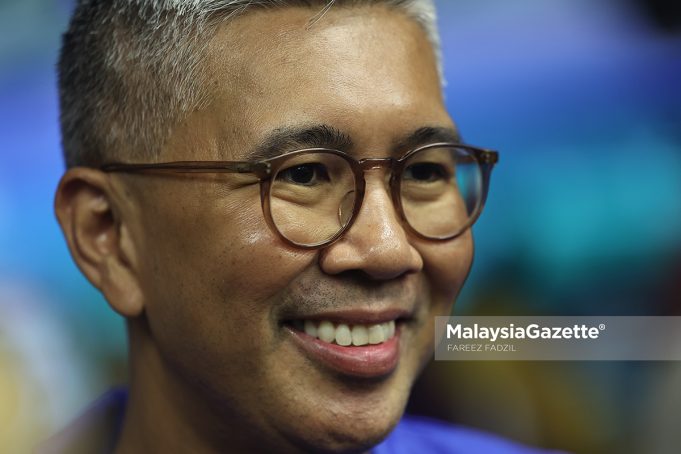The following article is submitted to the editorial of MalaysiaGazette by political analyst, Johan Mat.
The life and times of Tengku Zafrul
It was said that Malaysia needs more technocrats and fewer petty politicians to make things work. After all, any political appointment in government agencies, government-linked companies, or university boards is “celebrated,” with many snide remarks and complaints echoing down the power corridor. But one cannot help but admire and somehow pity the fate of the newly appointed Minister of MITI, the pride of Malaysia and inspired by METI, a legendary ministry in Japan: the professional and consummate banker Tengku Zafrul.
How did it come to this? Criticized by PH during his tenure as Finance Minister, yet now included in Anwar Ibrahim’s government as MITI Minister, a role no less important in ensuring Malaysia upholds its competition in industrial outputs and remains attractive for investors, Zafrul’s political journey proves to be unordinary. From being Bersatu’s poster boy to showcasing to Malaysians that PPBM is the place for Malay professionals to serve the country, Tengku Zafrul’s appointment as the treasurer for UMNO Selangor has raised many eyebrows and shocked the rest.
It didn’t stop there; whispers grew louder that even after his failed attempt to be Kuala Selangor’s UMNO MP, he had to move to Kota Raja Division because it was rumoured that he couldn’t even win grassroots votes and make it as one of Kuala Selangor’s UMNO G7 (a moniker for 7 representatives elected in UMNO division to represent the voice of Kuala Selangor UMNO members). A similar precedent occurred in 2014-2015, when Tun Mahathir was unable to secure enough votes to be a member of the G7 for one of the UMNO divisions in Kedah. The rejection is real and scary. Can UMNO Kota Raja save this banker’s political career? For sure, it would seem that there is no turning back for Zafrul since he decided to throw himself into the bottomless pit that is grassroots politics.
Remember, Zafrul was a top banker who built and grew Maybank Investment and CIMB Investment to what they are today. His glorious career peaked when he supervised the inception of Digital Nasional Berhad under the MoF, in spite of 5G being more likely to be in the domains of the Multimedia and Communication Ministries.
What many didn’t notice is that Malaysia, due to political instability since 2018, is very much behind other Southeast Asian countries when it comes to 5G, and Fahmi Fadzil’s recent befuddling statement would only widen the gap.
Not too long ago, when we had a PN government that gave the key of the MoF to Zafrul, the Minister of Finance actually tried to close the gap. His little-publicized effort to form a DNB-Ericsson collaboration that resulted in a more cost-effective Single Wholesale Network (SWN) is gradually proving to be efficient—even better than the Mexicans. Zafrul was recently praised by United Nations advisors who were monitoring the development of 5G in France and Brazil. Bear in mind that 5G is the next global controversy, with cases such as tech giant Huawei caught in spying allegations in Canada, as well as the UK government’s strict order for every piece of 5G equipment in the country to be dismantled within 3 years. Thankfully, Tengku Zafrul managed to steer the nation in order to side-step the controversy while at the same time maintaining a working relationship with Huawei and the thousands of jobs they have created here at home.
In less than a month as a MITI minister, Tengku Zafrul was in Davos speaking, influencing, and eloquently promoting Malaysia as an investment destination—ensuring our country remains the profit centre of ASEAN and Asia. His efforts are reminiscent of former MITI Minister Mustapa Mohamed’s valiant efforts in Davos in 2014, which resulted in Malaysia setting all-time records for investment approvals.
After becoming the only survivor from the PN-BN cabinet, what could possibly go wrong with Zafrul’s political journey? And why is this man unpopular either within UMNO or among Malaysians? Some say that the clue could be in the recent push for another release of EPF withdrawals. Tengku Zafrul was publicly objecting to it then, only to fold in after then-Prime Minister Ismail Sabri decided it was too much of an election risk. But, as we all know, UMNO went all guns blazing, claiming that early dissolution benefits everyone, and recorded the worst general election results in the organization’s history.
Thankfully, Zafrul managed to retain the loyal services of Selangor State Assembly Opposition Leader, State Assemblyman Rizam Ismail. YB Rizam was touted to be the king of grassroots politics among Pemuda—he single-handedly commands support from 85 UMNO branches at his division and once organised a branch meeting with more than 100 turnouts—a record considering 8,500 members for an entire division would probably mean more than the entire volunteer brigade Pakatan ever enjoyed in the whole state of Selangor. Yet even YB Rizam, with his massive political influence, couldn’t manage to secure Zafrul’s candidature in Sabak Bernam, a winnable seat and his home town. A state seat in the upcoming Selangor state elections would be beneficial for his political journey to be UMNO Selangor’s Menteri Besar. In the end, a stellar track record, a polished professional background, and a litany of achievements by Tengku Zafrul still could not propel him into the upper echelons of UMNO and Malaysian politics.
Perhaps what Zafrul needs is a media expert to help him tell his stories in a way that people will resonate with.
Johan Mat
Political Analyst
Editorial note: The views expressed are those of the author/contributor and do not necessarily represent the views of Malaysia Gazette.
Read More:
Tengku Zafrul dahului 104 penerima darjah kebesaran, pingat Negeri Selangor
Agong, Tengku Zafrul saksi perjanjian Petronas dengan ADNOC di Dubai

















